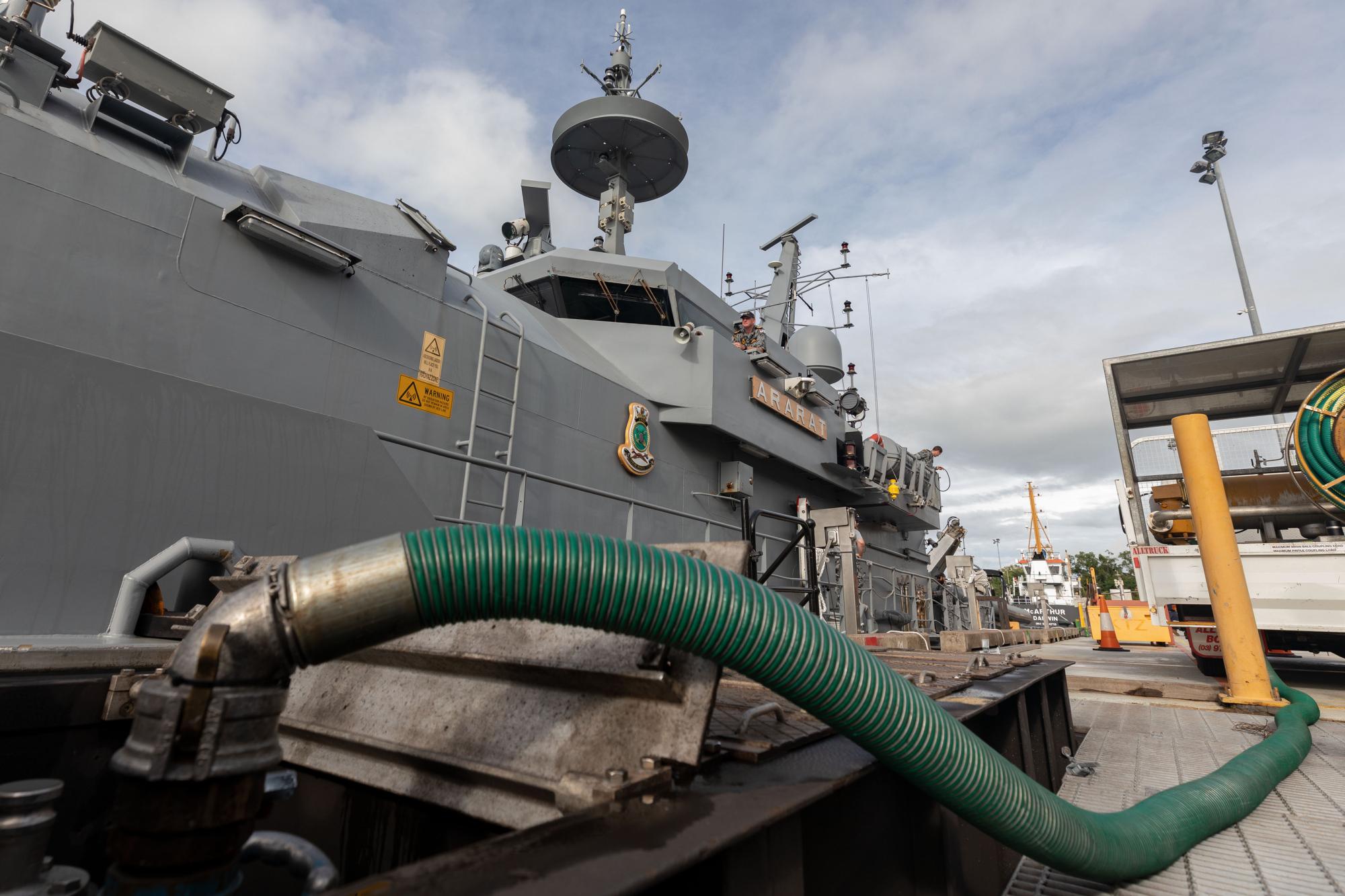
Over the last three decades, the Australian Defence Force (ADF), enjoying an era of peace and strategic stability, shifted from prioritising sovereign fuel resilience to investing heavily in outsourcing. With strategic warning times shrinking and supply chain vulnerabilities surfacing, the ADF must elevate fuel security to a Fundamental Input to Capability status.
The fall of the Berlin Wall in 1989 was not merely a symbolic end to the Cold War; it heralded a new era of unprecedented globalisation. It accelerated the development of just-in-time supply chains, centralised production, offshoring and privatisation.
Nations and businesses alike redefined their strategies to embrace economic efficiency and streamlined operations. However, this transition came with significant trade-offs for Australia: sovereign capability and national resilience.
The ADF, like many other institutions, has adopted a market-driven model, focusing on leveraging external providers and technological innovations. While this shift was intended to enhance operational flexibility and cost-effectiveness, it has also introduced critical vulnerabilities, particularly in supply chain management. This strategic shift has inadvertently compromised our sovereign capability and national resilience, underscoring the need for a more robust approach.
The lessons learned from the International Force East Timor (INTERFET) in 1999 and the COVID-19 pandemic highlighted the need for change.
The ADF’s participation in INTERFET illustrated the critical importance of effective logistical coordination and the need for adaptive strategies in complex operational environments. The mission highlighted the necessity of robust supply chain management and the ability to integrate and synchronise efforts with international partners to ensure operational success.
The COVID-19 pandemic exposed Australia’s logistics resilience vulnerabilities, particularly in the supply chain for essential products like AdBlue, a crucial component for diesel engine emissions control. In this case, both Russia and China decided to restrict the compound necessary to make the product. Without it, Australia’s trucking industry would grind to a halt. This experience highlighted the urgent need for Australia to enhance its domestic liquid fuel production capabilities and build more robust and resilient supply chains to mitigate future disruptions.
Despite these valuable lessons, the ADF has continued to rely on market forces to resolve supply chain issues. Recent geopolitical tensions and a reduction in Australia’s strategic warning time have created a burning platform for immediate change.
For the ADF, liquid fuel resilience presents a challenging supply chain vulnerability. Liquid fuels are not just a logistical component but a strategic asset.
Recognising this, the ADF must elevate fuel security to a Fundamental Input to Capability status. This involves developing a comprehensive fuel strategy integrating robust storage and distribution networks. The focus should be on creating redundancy in supply lines and ensuring backup systems are in place to mitigate local, regional and global disruptions.
A secure and consistent supply of manufactured fuel is vital for sustaining military operations, powering equipment and enabling rapid response in high-stress scenarios. The ADF can reduce dependency on external sources by establishing robust domestic manufacturing capabilities, mitigating supply chain risks and strengthening national security resilience.
Effective logistics management relies on accurate forecasting and proactive planning. The ADF should invest in advanced forecasting tools and modelling techniques to better anticipate and prepare for potential disruptions. This includes implementing scenario-based planning exercises to simulate various crises and evaluate response strategies. These should consider the possibility of continuous, concurrent and cascading risks and shocks. By incorporating these tools, the ADF can improve its ability to respond swiftly and effectively to emerging threats.
The complexities of modern logistics require a collaborative approach. Fuel security and resilience are not solely concerns of the ADF but are pivotal to national stability and economic security. Disruptions in fuel supply can affect critical infrastructure, public services and the broader economy, highlighting the interdependence between military readiness and civilian sectors.
To address this pressing issue comprehensively, the ADF must collaborate with government agencies and stakeholders across various sectors to develop a unified strategy ensuring robust fuel security and resilience for the nation. The ADF must enhance its engagement with state and territory governments and private sector stakeholders. Building strong partnerships across these sectors will facilitate information sharing, resource pooling and coordinated response efforts. This collaborative framework will be instrumental in addressing logistical challenges and ensuring a unified approach to national security.
The current geopolitical landscape, marked by increased risks and reduced warning times, underscores the urgency of these recommendations. The burning platform we face necessitates a strategic overhaul in our logistics and supply chain management approach with a clear focus on liquid fuels. The ADF can build a more resilient and effective logistical framework by prioritising fuel security, enhancing forecasting and planning capabilities and strengthening collaborative efforts. This will support sustained military operations and fortify Australia’s strategic posture in an increasingly uncertain global environment.
It is time to rethink our approach and invest in the resilience and preparedness needed to navigate the complexities of the modern world.